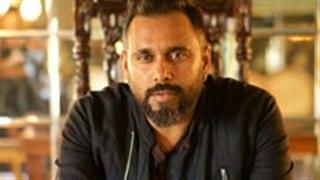Directed by Tom Hooper
Rating: **** ½
The King's Speech was waiting to be made. And pun certainly intended. Think about it. A member of the royal British family with a stammer who conquers his disability to emerge a winner in the eyes of family and country. Now why didn't someone think of this before?
Inspirational tales are always welcome.This one is a specially rousing one, told with a flair for understatement that tickles your palate for nuanced aesthetics just that much without getting anxious about making an impression.
The exquisitely-crafted film opens with a closeup of an archaic gadget that resembles a bedpan hanging from the ceiling.It is the radio microphone which is to King George VI what the dancefloor must have been to Sudha Chandran after she lost her foot. She had for succour her artificial Jaipuri limb and an awful film about her inspirational story called Naache Mayuri.
King George has much better support in a speech therapist named Lionel Logue (Geoffrey Rush), and thankfully Georgie Old Chap is not around to play himself.That excellent but largely wasted British actor (who has done some awful films inckuding one with our own Aishwarya Rai Bachchan) Colin Firth plays George with such rare empathy , the real George VI would wonder why he wasn't more like Firth.
Remarkably there is an even better performance than Colin Firth's in The King's Speech.Geoffrey Rush plays George's speech therapist Lionel Logue with the right quantums of calmness and cockiness. Here's a man not quite as ahead of his times as he would like to believe. Lionel Logue just got lucky with King George's stammer.
As expected the best interludes in the work are between Firth and Rush, recreating what could have been royalty's most irreverent encounter ever with medical advice. In Lionel's presence King George doesn't quite make the grade as one of the boys. But the King doesn't appear pompous either.A rare achievement.
For a film about a hero who gets tongue-tied at the most inopportune moments (surely it can't get more awkward than the entire country listening to you as you try to enunciate the the introductory hello) the film is remarkably and defiantly smooth-flowing.
 Director Tom Hooper is never dazzled by the Royalty, nor by the acting and technical talent
that he has accumulated in this film to recreate a delectable slice of royal life.
Director Tom Hooper is never dazzled by the Royalty, nor by the acting and technical talent
that he has accumulated in this film to recreate a delectable slice of royal life. Throughout the narrative, even when World War 2 breaks out the plot never loses sight of its impressively real royal hero, a figure that lends itself to immense grace even when faced with imminent and immediate vocal disgrace.
An Oscar for Colin Firth is but a small gesture for a performance that ventures into the opposite area to bravura. Indian actors even at their best tend to draw attention to the character's blind spot to extract audiences' sympathy.
In Colin Firth's hands and mouth King George's stammer ceases to matter after ten minutes of storytelling.What we are looking at is a King who loves his life, wife, daughters, country and throne. And is not willing to abdicate any role just because someone up there forgot to gives his tongue that one final slap before letting it loose.
The King's Speech is the only film about royalty where millions have not been spent on creating courtly flamboyance.The film's opulence comes from its delicate and subtle delineation of details that make a king great even when he can't say a hello without faltering.
What makes Firth's King George so human is his astonishing affinity to remaining normal even when war rages both within and without.
This is a true inspirational story.One that you can't stop praising in stammering gratitude.



















